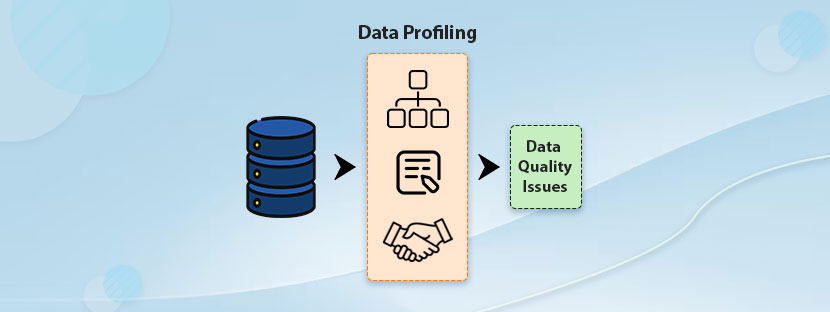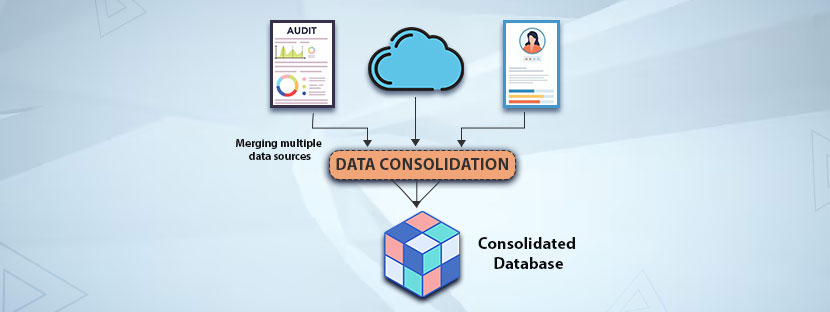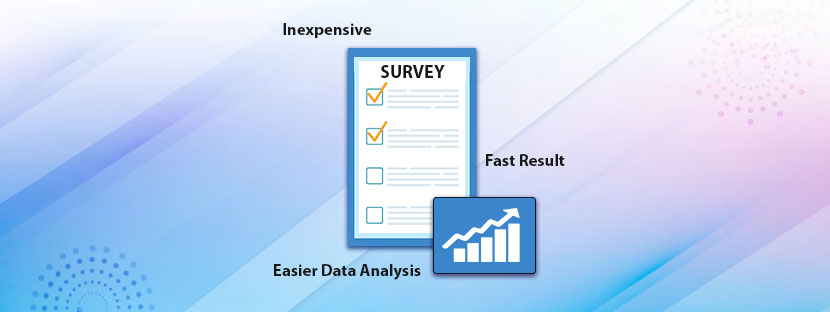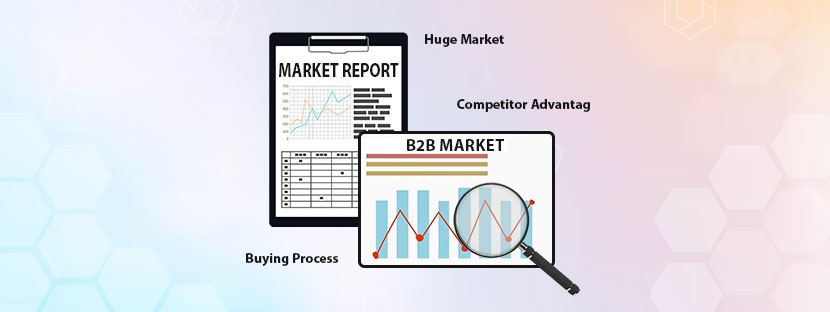Directly jumping into the data pools without any knowledge about their depth is not fruitful at all.
A complete understanding of the raw data and the associated hazards is necessary when working with it. Data profiling can help you do so. It meticulously analyzes your data to point out hidden patterns, spotting inconsistencies, and therefore, helps manage the overall data quality. There are many such data profiling benefits you can explore.
Let this blog help you reveal the undistorted benefits that data profiling presents for businesses in detail.
Brief about data profiling
Can you cook a dish well when you have all the ingredients scattered all over the place? No right? You need everything beforehand in order to remember what you should put into the dish. Similarly, you cannot bring the outcomes from the data that you want until it is properly arranged in the right order. And for that, data profiling helps.
Data profiling is a process of sorting, understanding, cleaning, and analyzing the data to obtain a clear overview of the data. It makes the data easy to interpret and analyze for further processing and analysis.
✔ In essence, data profiling breaks data into multiple segments, cleans them, and finally sorts & organizes them so it can be understood better. You can extract information from datasets and utilize it for your business purposes. Overall, it can help you prepare for getting more value from your data.
Data profiling benefits you can explore

✔ Accurately profiled data is important for you to achieve business goals. With this, you can understand data better. So in turn, you can make better decisions automatically. But that is not the limit of data profiling. Here are the elaborated benefits you can have from data profiling;
Understand your data better
Maintaining data quality standards is important to sustain your business in the long run. Profiling the data helps you interpret the data further. Once you understand it, you can improve your data quality, which means improving the accuracy, consistency, completeness, and reliability of your data for further steps. Ultimately, this will impact your business decision, make your data compliant, and help you to reach your customers with more confidence.
Data issues identification
Profiling opens up the hidden elements of your data. Missing values in the database or inconsistent data can be traced easily after data profiling. You can eliminate those datasets from your databases that are not meeting your business standards. Apart from that, you can predict potential errors and anomalies from the profiled data. Hence, you can take precautionary measures to prevent such data errors in advance. Data profiling will indirectly help you manage the regular data flow into your system and improve your operational practices.
Risk mitigation
Specific data measures are followed in different industries as part of the regulatory requirements. Data profiling helps businesses comply with all the regulations and provides visibility into a data structure. Because of this, profiling can detect as well as prevent data breaches. It works best in mitigating data risks in an impactful manner. The best part of data profiling is that it can help you identify the sensitive data that needs immediate threat protection.
Build data governance
Establishing data governance rules is the ultimate rule of any organization, and for that, data profiling can help you with complete support. It supports you with the data lineage process, in which you can trace data from the sources to its destination. Data profiling also helps you discover data (a comprehensive understanding of the data that you have). Also, you can initiate a data literacy program once you have profiled your data in a structured manner. It will let your people understand what type of data you are working with and what you want from it.
Inculcate data integration
Data in fast-paced business operations often gets migrated from one database to another for better usage. Hence, it’s always better to keep data handy for the integration or migration process. In this case, data profiling helps businesses to merge and migrate data whenever required. You can have a comprehensive understanding of your data with data profiling. It reveals to you the data structure, the content in it, and the relationship between the different points.
It’s a fact that companies that seamlessly migrated their data from one point to another have a strong data profiling system. They have a detailed understanding of their processes, and hence, it helped them migrate data from one location to another without hassle.
Develops a data-driven culture
Data-driven decision making is nothing but the only way to succeed in this new business world. From making a purchase to signing up for a program, every kind of data is now traceable. It leverages your marketing efforts when you properly utilize it. Do you know that more than 65% of organizations will become fully data-driven by 2026? These organizations will be able to get the best out of their decision-making because of a data-driven culture.
To bring this culture up, you have to profile your data and have to understand your data matters more closely. Whether you are implementing the AI or any part of the machine learning process, you need to focus completely on understanding your data values. And for that, there is nothing better than data profiling.
Understand customers better
Data profiling is a process where data is segregated into multiple portions. It helps you understand the data better. Naturally, if you profile your customer data using this principle, you can get better data understanding. It also means you can understand your customers better with their data behavior. You can utilize these insights in your marketing process and get the best return from it.
Help in compliance
Last but not least, data profiling helps in compliance. It helps you identify sensitive information and its usages. Once the sensitive details are revealed, you can take appropriate security measures to protect them. On the other hand, it can also help you to build a strong data governance strategy.











